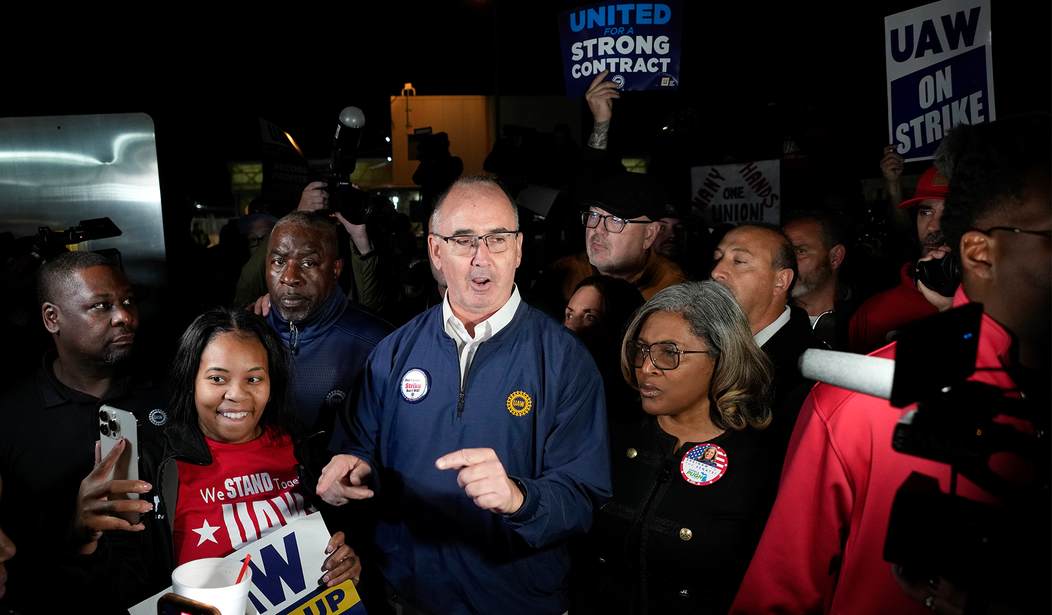Today, the United Auto Workers (UAW) strike against Detroit’s Big Three automakers enters its seventh day, with no discernible resolution in sight.
This landmark strike is the first time the UAW has gone on strike against all three Detroit automakers: General Motors, Ford, and Chrysler owner Stellantis. At the start of the work stoppage, which began on September 15, nearly one in 10 of America’s unionized auto workers went on strike to pressure the Big Three to raise wages and increase benefits.
In the 88 years since the UAW was founded, the union had always negotiated with one auto manufacturer at a time, thus effectively minimizing the effect that any strike would have on the industry as a whole. However, post-pandemic America has set the scene with record-high inflation and a costly transition to electric vehicles (EVs). These combined factors have incentivized the UAW and the workers to rally together to create a painful standstill that will deeply impact the entire American automotive industry.
The UAW is asking for a 36 percent wage hike over a four-year contract. They also want the Big Three automakers to eliminate their two-tier wage model, offer defined benefit pension plans to all employees, limit the use of temporary workers, offer a four-day work week, and provide more job protections, including the right to strike over plant closings.
The UAW justifies their demands by claiming that the Big Three automakers have enjoyed large profit margins with the elevated costs of vehicles since the coronavirus pandemic, as well as citing inflation.
However, with each day the strike drags on, the overall cost to workers and companies will continue to grow. This creates the perfect storm for American auto dealers to continue to raise the prices of vehicles, with the cost of new and used vehicles out of reach for most Americans.
According to AP News, just five years ago, there were around a dozen small cars selling for less than $20,000. Now, there is only one. With a lingering chip shortage from the pandemic, the average price of a new vehicle has now hit $50,000. Furthermore, auto finance delinquencies have risen past their peak during the Great Recession; and, used car prices remain exorbitantly high. Combined with persistent inflation and high interest rates, Americans are having a very difficult time affording a car.
The very last thing Americans bogged down with inflation need is another factor making cars more unaffordable.
To make matters worse, the Biden administration continues to remain woefully out of touch with middle-class Americans by pushing the U.S. automotive industry to accelerate a transition to expensive EVs as part of its goal of “decarbonizing the economy” by 2050. In fact, when the Biden administration set out these goals earlier this summer, the UAW warned that such a rapid push to EV production could put thousands of jobs at risk.
It also should be noted that most Americans do not want, and cannot afford, electric vehicles. According to Kelley Blue Book, electric vehicles are much more expensive than conventional vehicles. Moreover, a poll by the Energy Policy Institute at the University of Chicago and the Associated Press-NORC Center for Public Affairs Research found that 47 percent of U.S. adults said it’s unlikely they would buy an EV as their next car. Despite the economic impracticality, the Biden administration continues to force the electric vehicle agenda onto American automakers and consumers.
Overall, America’s manufacturing ecosystem has crumbled in the decades since the Ford heyday with many companies choosing to offshore countless manufacturing jobs for more affordable labor and an ununionized workforce. For the sake of America’s labor economy, one can hope that such demands and strikes do not incentivize American automakers to look internationally for labor.
Hopefully, the UAW and auto manufacturers can come to a resolution before the end of the week that appeases the hard-working Americans in the auto industry while minimizing any additional economic effects for the rest of the nation.
Samantha Fillmore ([email protected]) is a state government relations manager with The Heartland Institute.













Join the conversation as a VIP Member